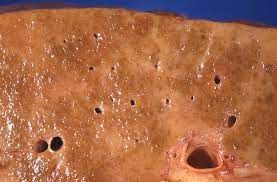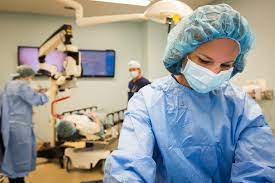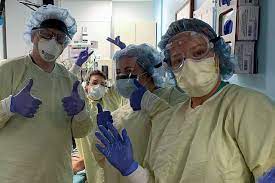The Potential Dangers Of Human Growth Hormone Abuse

Dangers and Side Effects of Human Growth Hormone Abuse
Human Growth Hormone Replacement Therapy is an incredibly safe treatment option for patients who suffer from HGH Deficiency.
There are few, if any, side effects when Human Growth Hormone is prescribed by a medical professional and used safely and responsibly, but there are a number of side effects associated with the abuse of Human Growth Hormone.
Human Growth Hormone and Carpal Tunnel Syndrome
HGH abuse has been linked to Carpal Tunnel Syndrome and arthritis exacerbation. In some cases, Carpal Tunnel Syndrome occurs because edema (which is also caused by HGH abuse) over-hydrates the cells in the area of the wrist, increasing the pressure on the joint while also exacerbating underlying arthritis issues.
Long-term abuse may also directly cause Carpal Tunnel Syndrome because HGH is an incredibly potent hormone that increases the rate at which bones and muscles grow, in addition to other organs.
If the cartilage of the joints grows as a result of HGH Abuse, this can lead to increased pain and reduced ability to have a full range of motion with the wrists.
Human Growth Hormone and Arthritis
the Abuse of HGH can also lead to arthritis in individuals who choose to abuse the drug for an extended period of time. Arthritis occurs for the same reason as Carpal Tunnel Syndrome. Human Growth Hormone stimulates the growth of cartilage and bone, which can cause joints to grow abnormally. Although the epiphyseal plates close at the end of puberty, the bones can no longer grow longer truly; they can still grow in a malformed way which can contribute to joint issues later in life.
Edema and Human Growth Hormone Abuse
Edema can occur after a short period of HGH Abuse. Edema is defined as excess water retention that causes body parts to bloat slightly. With HGH Abuse, edema occurs as a result of extracellular fluid. Edema, if left untreated, can cause many adverse health issues.
Edema in the legs, for example, can cause blood vessels and veins to break and rupture, preventing the body from circulating blood efficiently through the body. Clinical and anecdotal evidence regarding extracellular edema and Human Growth Hormone suggests that edema is relieved quickly after abuse of HGH ends in the vast majority of cases.
Gigantism and HGH Abuse
Gigantism results from Human Growth Hormone abuse in children, adolescents, and teenagers before the epiphyseal plates close at the end of puberty. This can cause children to grow too large for their frame and lead to physiological complications later in life, including joint pain and arthritis. Many younger individuals (or their unscrupulous parents or trainers) believe they can use Human Growth Hormone to increase size advantage across the board for the youth to dominate athletics.
The primary side effect of this is that the bones grow abnormally, which can actually make individuals frailer than they would be at their average adult  height. In addition, this form of HGH abuse can increase the size of internal organs, causing many negative health issues.
height. In addition, this form of HGH abuse can increase the size of internal organs, causing many negative health issues.
Also, Gigantism can distort the features of the hands, feet, and face, leading to a decided neanderthal-like appearance. Generally, gigantism results from a chemical imbalance in the brain, as in the case of Andre the Giant. There have, however, been cases where symptoms of gigantism have occurred due to adolescent Human Growth Hormone Overdose.
Acromegaly and Human Growth Hormone Overdose
Acromegaly, in a way, is the adult form of gigantism. Because the epiphyseal plates have closed, the adult body can no longer grow in height. Acromegaly is when the bones of the hands, feet, and face grow abnormally due to excess HGH levels.
Long Term HGH overdose causes the bones to grow abnormally thick, calcifying more and more areas around the bone and changing the entire shape of the bones, although not lengthening them meaningfully.
This can lead to hands and feet being prone to severe arthritis and wrists prone to carpal tunnel syndrome. Acromegaly is the one side-effect of Human Growth Hormone abuse that is not reversed by ending HGH abuse. Changes in bone structure are relatively permanent.
Diabetes and Human Growth Hormone Abuse
Although HGH Hormone Replacement Therapy can be highly beneficial for patients who suffer from diabetes, the abuse of HGH can be highly detrimental. Human Growth Hormone and Insulin are both hormones that work by affecting metabolism. Insulin regulates the breakdown of carbohydrates and sugars, while Human Growth Hormone encourages the breakdown of fat and increases cellular metabolism.
Human Growth Hormone converts into Insulin-like Growth Factor 1 in the liver and has a similar molecular composition to Insulin. IGF-1 can compete with Insulin at receptor sites, inhibiting Insulin's ability to regulate blood sugar levels.
This only generally occurs in the instance of HGH Abuse because Insulin receptor sites favor Insulin over IGF-1 by a large margin, and IGF-1 only crowds out Insulin when an overdose occurs.
Hypothyroidism and Human Growth Hormone Abuse
In some cases, hypothyroidism can be unearthed due to HGH Deficiency. Human Growth Hormone does not cause hypothyroidism, and there is actually evidence that HGH Hormone Replacement Therapy can treat Hypothyroidism, but Abuse of Growth Hormone can cause the Thyroid Gland to malfunction, secreting lower levels of Thyroid Hormone.
After Human Growth Hormone Abuse has been suspended, the thyroid gland may be unable to function normally, decreasing energy levels and increasing the risk of weight gain immediately after therapy ends. The Thyroid gland plays an essential role in both hunger and energy levels.
When thyroid hormone levels are low, the thyroid constantly sends a message of hunger, causing the body to store more fat and the brain to want more food. In addition, the constant hunger warning signal prevents other hormones from functioning correctly and can exhaust both body and mind, leading to fatigue.
Any patient interested in HGH Hormone Replacement Therapy should also undergo testing for hypothyroidism because hypothyroidism causes many symptoms of HGH Deficiency and may even be able to be treated with appropriately safe levels of Human Growth Hormone.
Liver Damage and HGH Abuse
If Human Growth Hormone levels in the bloodstream are far too high, this can lead to permanent liver damage. The liver is only equipped to convert a certain amount of Human Growth Hormone at any particular time.
When the body receives a long-term overdose of HGH, this overloads the liver and causes the organ to be damaged. The liver is one of the slowest to  heal organs in the human body and can easily be damaged permanently.
heal organs in the human body and can easily be damaged permanently.
Also, liver damage is the primary reason oral Human Growth Hormone and HGH Releasers should be avoided. Stomach acid breaks down HGH and the components of Human Growth Hormone Releasers, sending rogue amino acid chains to the liver. If the liver is flooded with particular amino acids and enzymes, the organ can take heavy damage over time as a result.
Decreased Pituitary Gland Functional
For those who abuse HGH Injections, the excess Human Growth Hormone flooding the body causes the body to send signals to the pituitary gland to restrict the endogenous release of Human Growth Hormone severely.
This process is known as negative feedback, and when more Growth Hormone is introduced to the human body than the pituitary can physiologically create, this causes harmful feedback mechanisms to ramp up to the absolute max.
Negative feedback can also sometimes reduce pituitary function in patients with HGH Deficiency. This is why it is often recommended for patients in their 30s, 40s, and 50s to take one or two days off from treatment per week to encourage the pituitary gland to continue producing HGH as efficiently as possible.
This is also why some doctors recommend Sermorelin Acetate Therapy over HGH Injections. This allows the pituitary gland to produce more endogenous Human Growth Hormone by stimulating the pituitary with synthetic GH-RH.
There are other potential side-effects related to HGH abuse, but these are a few of the most well-known.
How do I avoid the symptoms of HGH Abuse?
Do not use Human Growth Hormone if you have healthy endogenous HGH levels. Also, do not take HGH injections that exceed two units. There is a large amount of clinical evidence that when used responsibly, Human Growth Hormone Replacement Therapy causes few or no significant side effects.
Many men and women use Human Growth Hormone to enhance their athletic performance and take HGH injections that far exceed a healthy human dose in their quest to defeat their competition. Side effects from HGH Abuse tend to develop over time. Few side effects occur immediately, and this tends to encourage individuals to abuse the highly potent hormone even more.
If you have abused Human Growth Hormone in the past, the good news is that most of the effects are reversible. Specific issues such as acromegaly and liver damage can not be reversed, but these are the two symptoms that result from the severest forms of abuse.
Who should avoid Human Growth Hormone?
If you are a cancer patient, you should avoid Human Growth Hormone. Although HGH has not been shown to cause cancer, there is still evidence that Human Growth Hormone may exacerbate existing malignant tumors. HGH's primary function is to increase cellular metabolism.
In healthy patients, this is highly beneficial, but in patients with active cancers, this may exacerbate anti-cancer treatment. If you have a family history of cancer, you should be upfront and honest with your doctor to discuss the potential risks of treatment, especially if you have a family history of reproductive and prostate cancer.
If you are currently being treated for an acute critical health issue, you should avoid Human Growth Hormone Replacement Therapy until the medical issue is resolved. Issues such as heart or abdominal surgery may necessitate that you suspend HGH Hormone Replacement Therapy.
Women who are breastfeeding or pregnant should talk to their physician about the use of Human Growth Hormone Replacement Therapy because it is unclear at this time whether HGH Injections affect the fetus or if HGH is secreted through the milk ducts.
unclear at this time whether HGH Injections affect the fetus or if HGH is secreted through the milk ducts.
Although there is evidence that HGH Hormone Replacement Therapy may be a beneficial way to treat diabetes, patients with diabetes should closely monitor blood-glucose levels because Human Growth Hormone Replacement Therapy and Diabetes both affect human metabolism in unique but somewhat interconnected ways.
All patients who consider HGH Hormone Replacement Therapy should be tested for other hormone disorders to ensure that HGH Hormone Replacement Therapy will benefit the patient.
How to Avoid Side-Effects when Administering Bio-Identical Physician-Prescribed Human Growth Hormone Replacement Therapy
When used correctly, HGH Hormone Replacement Therapy causes few or no side effects. Several medical techniques can prevent symptoms such as edema and cranial hypertension as the body transitions to a new and healthier level of Human Growth Hormone.
When HGH Therapy first begins, it is often recommended to start at a dose slightly lower than what your diagnostic testing may suggest. This is because every patient has unique Human Growth Hormone needs, and what may bring optimal health to one patient may induce minor side effects in another.
If the body still seems like it could respond more vigorously to HGH Replacement, the dosage can be adjusted slightly upwards at a later date. In addition, Human Growth Hormone produces the fewest side effects when administered the most often.
Another reason those who abuse Human Growth Hormone suffer side effects is that they shoot themselves up with large doses, which overwhelm the body. This is why it is generally recommended that patients with HGH deficiency inject themselves daily with Human Growth Hormone.
This helps the medication more closely mimic natural HGH production, which helps the body respond more positively to introducing healthy levels of Human Growth Hormone. Some patients even opt to take two small injections twice a day.
These patients take one injection before bed and just before physical exercise.
These are the two periods of the day when HGH secretion is at its peak.
Protocol for Safe and Effective Hormone Replacement Therapy
For all patients, HGH Hormone Replacement Therapy will feature a relatively low yet potent dose of one to two units of Human Growth Hormone per day. This minimizes the risk of side effects while maximizing the potential benefits of therapy.
For patients older than thirty-five who are suffering from the symptoms of Andropause and display a diagnosed deficiency of Human Growth Hormone and IGF-1, the standard dose is no less than one and no more than 2 IU per injection.
Although older patients may opt to undergo HGH Hormone Replacement Therapy seven days a week, younger patients in their thirties, forties, and fifties are generally recommended to only inject HGH Shots five consecutive days per week, taking two days off. These days off are generally during the weekend, but this is simply a personal preference.
It is essential to be aware of the dangers of Human Growth Hormone Abuse, but it is also essential to recognize that Human Growth Hormone Replacement Therapy is a safe and effective means to treat HGH Hormonal Deficiency that occurs as a natural result of the aging process.
Although HGH Deficiency is a natural occurrence, it is not a life sentence.
Today, HGH Injections can turn back the clock, allowing patients to bypass the dangers of Age-Related Human Growth Hormone Deficiency and increase the quality of their lives as they grow older.
HGH and Testosterone Hormone Replacement Therapy Often Beneficial in Combination
Both Human Growth Hormone and Testosterone tend to decline at similar rates. Many patients choose to combine HGH Hormone Replacement Therapy and Testosterone Injections to maximize the health benefits of alleviating the effects of Andropause.
 If you feel that you may be suffering from the effects of HGH Deficiency or Testosterone Deficiency, the Conscious Evolution Institute has a high-quality, board-certified staff that can set you on the path to your new life.
If you feel that you may be suffering from the effects of HGH Deficiency or Testosterone Deficiency, the Conscious Evolution Institute has a high-quality, board-certified staff that can set you on the path to your new life.
The Conscious Evolution Institute only provides the highest quality physician-prescribed Hormone Replacement Therapies, and our pleasant and knowledgeable staff will ensure that you get the best, fastest, and most cost-efficient treatments available.
If you are interested in the highly effective treatments we provide and think that we may be able to improve your life, we encourage you to contact us as soon as you can!
Yours in Health
The Conscious Evolution Institute
Also see: HGH Benefits 2
- Chinese Human Growth Hormone Abuses [Last Updated On: January 9th, 2025] [Originally Added On: December 15th, 2020]
- About HGH Sprays [Last Updated On: March 14th, 2025] [Originally Added On: December 16th, 2020]
- Human Growth Hormone Pills And Sprays Are A Bad Idea And Don't Work [Last Updated On: January 7th, 2025] [Originally Added On: December 17th, 2020]
- What Is The Legal Status Of Human Growth Hormone In The United States? [Last Updated On: January 7th, 2025] [Originally Added On: December 18th, 2020]
- Drugs Banned From Sports [Last Updated On: February 14th, 2025] [Originally Added On: December 20th, 2020]
- The Story Behind Operation Raw Deal [Last Updated On: January 6th, 2025] [Originally Added On: December 21st, 2020]
- Limits Of Ped Testing In The Olympics And Professional Athletics [Last Updated On: February 18th, 2025] [Originally Added On: December 22nd, 2020]
- “HGH” Supplements Can Be Deceptive [Last Updated On: July 6th, 2024] [Originally Added On: August 30th, 2022]
- Performance Enhancement Drug Testing: The Challenges and Future Developments in the Olympics and Professional Athletics [Last Updated On: February 11th, 2025] [Originally Added On: February 16th, 2025]
Word Count: 2385







